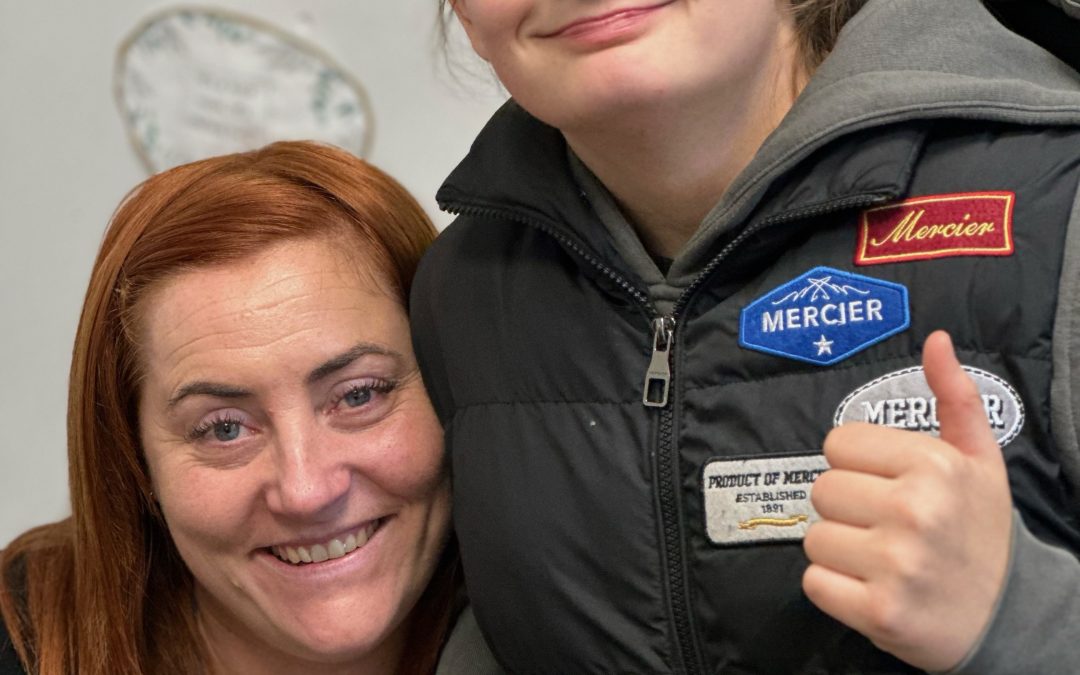Meet Fallon – WSAPC Crawley
Tell me about yourself: I am 14 and I live with my mum and 3 brothers, 2 have autism. I help my mum every day, and it can be tough! How my morning goes is how my mood will be at school, sometimes I am happy but mostly I can be sad and angry. Teachers understand and they do help me at school – our Pastoral Lead, Shiv (photographed with me) is my ‘go to’!
What frustrates you at school?: I know we are not a school for autism but because I live with it every day, I see it in others, sometimes before you (staff) do. It will kick off and you all deal with it straight away but because other students don’t get it, what you do can make it worse. When I try to tell you, I feel that you are not listening because I get very angry and I scream and shout at you so you just move me away and try to calm me down but “I just want to tell you something!”
When did you feel that your voice matters?: We have a new student, it kicked off because they were doing things that other students didn’t understand. I did my usual, shouting and screaming but then suddenly I was in a room being told to say what I wanted to say again but calmly. I did this and Mrs Gamon told me she was hearing me and she wanted my help! She asked me if I would do a “training session” with the other teachers at the end of the day and give them tips. I said yes and I said that I would help the new student and also talk to the others and try and make them understand them more.
How has being listened to made you feel?: I feel good! I am now a “Peer Mentor” to the new student, I help to calm them and talk to them when they kick off and I try to help before too. Being the first ever “Crawley APC Student Advisor” makes me feel great because I am being listened to, my voice matters and I am making a difference.
Have you seen any positive changes?: Yes, I have seen teacher’s do what I have said is best, and they are changing their “language” which helps too. Other students are starting to listen to me and they are not getting involved as much and are starting to move away more quickly which helps calm the situation much quicker.
TIPS TO ENSURE THAT YOUNG PEOPLE’S VOICES ARE HEARD.
(Mrs Gamon – Centre Manager at Crawley)
We have learnt a lot from this; all too often when an incident is escalating, we instinctively look for a quick solution. Our aim is to de-escalate as quickly as possible but this can mean that we are not listening and missing crucial information/strategies that will help us to be ‘proactive’ in the future rather than ‘reactive’.
When in heightened situations, students can struggle to communicate effectively, they often become angry and shout. Our natural assumptions are that they are reacting to the situation, without realising that they are trying to tell us something. Our immediate instinct is to calm them without hearing what they are saying. When we do this we are adding “more fuel to the fire” as they are left not feeling heard and that their voice is not important – SO
- Stop and listen…..allow them to vent but listen out for keywords – are they relevant to the incident that is currently happening?
- Tell them clearly – “I AM HEARING YOU”
- Guide them to a quiet space and repeat that you hear them, that you are listening and encourage them to talk calmly.
- Validate their voice – where possible (as in Fallon’s case) give them an action/responsibility, make them feel empowered, make them a part of a positive change and let them know that their voice matters!

Recent Comments